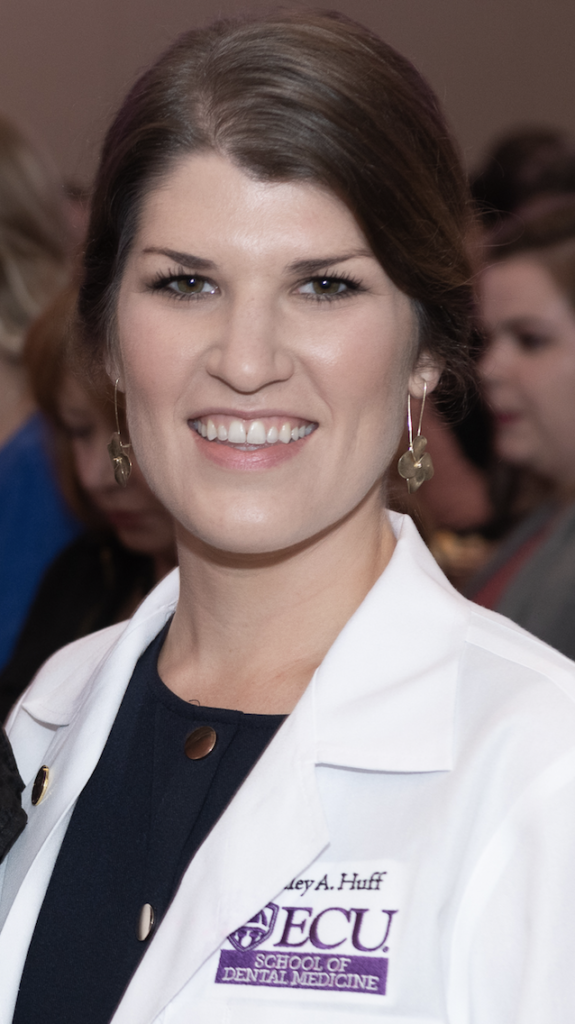September 20, 2020. The Daily Reflector. By Ashley Huff.
September 20, 2020. Elizabeth City Daily Advance. By Ashley Huff.

From the moment we wake up in the morning to when we are relaxing after a long day, we are continuously exposed to news regarding health care mergers and acquisitions, legislation pertaining to the Affordable Care Act and, most recently, the status of the COVID-19 pandemic. As we navigate these new circumstances, it is imperative that we do not overlook other critical, existing developments in public health. Buried under 2020’s whirlwind of headlines is the sobering reality that obesity is still on the rise in the United States.
It is no secret that the rates of chronic disease have been increasing in our country over the last few decades. In fact, almost 50% of Americans have one or more chronic health conditions such as high blood pressure, type 2 diabetes, heart disease and certain cancers. Each of these comorbidities can be traced back to the steady rise in rates of obesity since the early 90s. Over two-thirds of American adults and nearly one-third of American children are currently classified as overweight or obese. When considering the foundation behind these statistics, evidence can be traced to one major lifestyle choice: what we eat.
People are drawn to what is fast and affordable. Fast food outlets have capitalized on this concept and turned it into an industry that oppresses the American public through poor nutrition. Whether you eat out or bring fast food home to eat, these time-saving meals come with a price. Convenience foods are loaded with saturated fats and sugar. Consumption of saturated fats increases the level of LDL, or “bad” cholesterol in the blood which collects on blood vessel walls over time. This build-up decreases the amount of blood that can reach the heart, leading to the development of heart disease, the number one cause of death in our country. Added sugars pack on the pounds without providing any nutritional benefit and can be found in products you may not expect such as pasta sauce, ketchup and frozen meals.
In addition to chronic diseases the so called “Western diet” has detrimental impacts on gut health and one’s immune system. This is critical now more than ever, because the good bacteria within our gut help us to digest food as well as help our immune system combat the infectious particles we may be exposed to. Consuming a diet high in sugar and fat is harmful to these good bacteria and will ultimately limit our bodies’ ability to protect us. Recent studies supported by the National Institutes of Health have produced evidence that support a correlation between poor eating choices and an increase in the prevalence of autoimmune diseases such as rheumatoid arthritis, multiple sclerosis, type 1 diabetes and inflammatory bowel disease.
Forming healthy eating habits starts in the home—what better time for us to start making these changes then during quarantine? Here are a few suggestions to start eating healthier:
- Fresh fruits and vegetables can be pricy. Buying these items frozen will be a little easier on the wallet while not compromising nutritious quality. Low-sodium canned versions are also a good alternative.
- When you do buy fresh fruits and veggies, go ahead and wash and cut them. This makes them more likely to be grabbed when hunger strikes.
- Start an at-home garden. This would be a fun way to get the family involved and have more fruits and vegetables available.
- When stocking your pantry, stray from processed items like cookies and chips, and go for more nutrient-dense items like dried fruit and nuts.
- Replace high-sugar beverages like soda and juice with flavored seltzer water and unsweetened tea.
- Pay attention to labels and try to select items without added sugars. Also remember the longer the ingredient list, the more processed the product.
- Make an effort to plan out meals. This decreases the chance of having to rely on fast food.
There is still time to reverse the trends in the health of Americans. It is imperative that we be more conscious of the food choices we make. Incorporating small changes to one’s routine can help us work towards a healthier America. This change starts with you.
Ashley Huff is a 2020-21 J Bradley Wilson Schweitzer Fellow and a third-year dental student at the ECU School of Dental Medicine.
